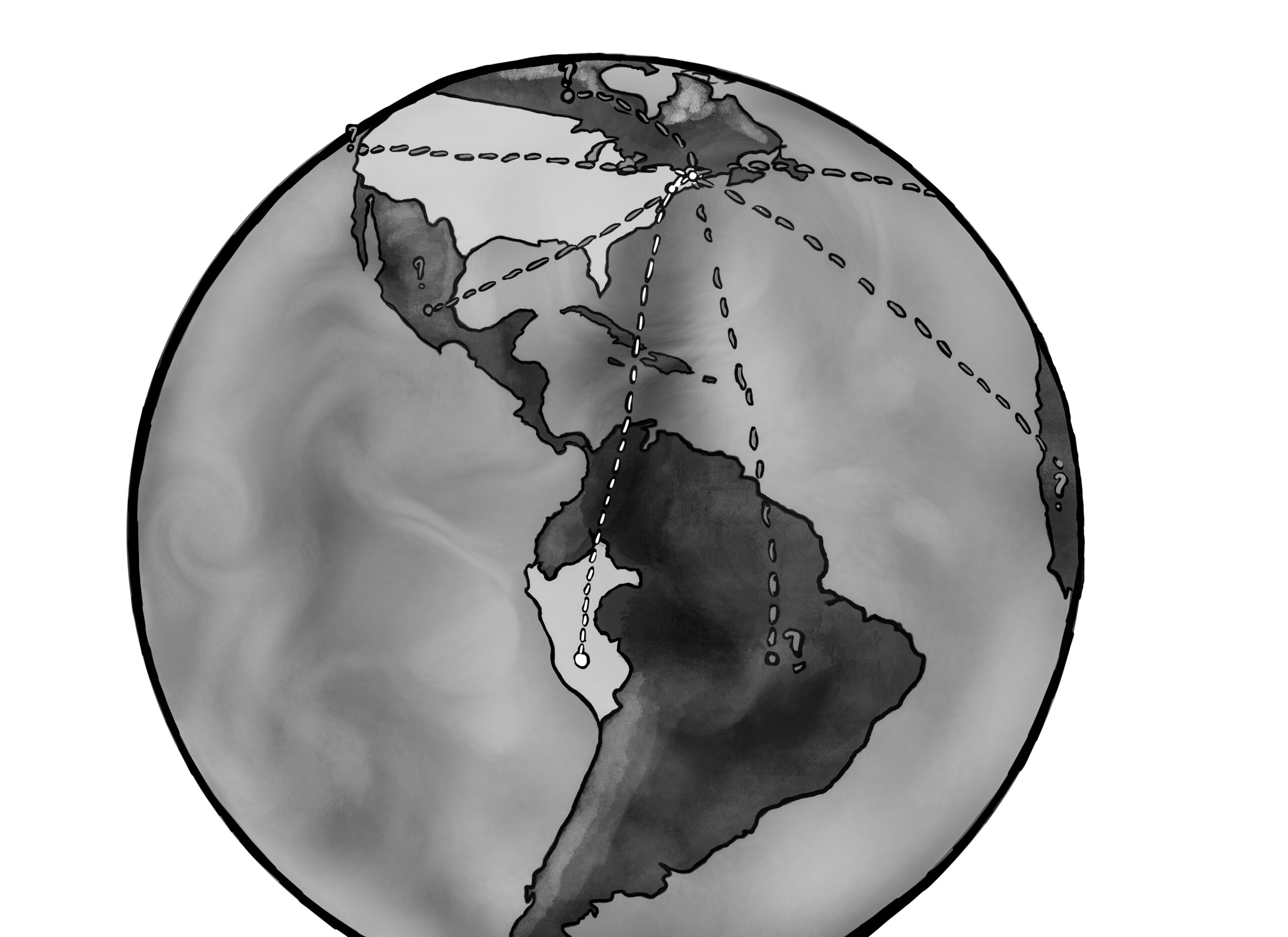The struggle for a sense of belonging
February 19, 2021
 This
piece represents the opinion of the author
.
This
piece represents the opinion of the author
.
 Nur Schettino
Nur SchettinoI miss home, or at least what I once called home. If you have had a class with me during the Zoom era, you may have noticed a large Peruvian flag in the background of my camera. Whenever I am asked “where are you from?” I will respond with “Huancayo, Peru.” To the person initiating the small talk, this has often been a satisfactory answer. However, this answer often feels like a half truth because since 2009 I have been residing in Lawrence, Mass.—a city with a predominantly Dominican and Puerto Rican population.
Lawrence, often called the “City of Immigrants,” never really felt like home to me. Thus, I refrained from calling it as such. When I first immigrated there, I could not understand Caribbean Spanish dialects, as they differed vastly from the Spanish I grew up speaking. The bachata and salsa tunes played at the corner stores (called bodegas) diverged from the softer cumbia beats my family in Peru played. The kids in my neighborhood also had no interest in playing fútbol, something which shocked me at the time.
Although I lived in a predominantly brown Latin American community, the differences between the Central American/Caribbean cultures and my own South American culture truly confused me. For a long time, I tried denying Lawrence’s influence on my identity because assimilation felt like betrayal to my own culture. However, I now hold so much gratitude for Lawrence’s influence in my life because it became a part of me. Because of Lawrence, I enjoy baking tres leches cakes and eating Dominican pastelitos on Saturday mornings. I can no longer live without dancing bachata while cleaning my dorm room. The tough challenges Lawrence posed to me, as an immigrant, built a crucial degree of independence in my character. Perhaps I will never fully feel like “a part” of the community, but I proudly accept that they became a part of me.
However, a new confusion arose in 2014 when I began attending Saint John’s Preparatory School, a predominantly white and upper class school in Danvers, Mass. Having already experienced one type of culture shock in Lawrence, I suddenly found myself in a stereotypical American high school where I could not relate to my classmates’ life experiences. I did not possess American citizenship, I did not celebrate St. Patrick’s Day and I did not understand everyone’s obsession with “Barstool Sports.”
During 2016, my junior year of high school, Donald Trump won the American presidency. I became a naturalized American citizen during this period, and part of that process involved taking the Oath of Allegiance. I still had that strange feeling of not belonging. How could I pledge allegiance to a country that did not feel like home? A common response to my concern then became, “then why don’t you just go back to your country?” For the first time, I had to label and categorize my identity as an “American” out of fear of isolation. The lack of understanding and empathy for immigrants that the Trump presidency created will never cease to shock me.
Graduating from high school in 2018 gave me the first opportunity to return to Huancayo, Peru since I left—to finally return to the place which I called home. However, just like my identity changed through the years, so did Huancayo. The childhood friends and family members I grew up with had become different people, and some had even moved to different countries. The landscape had also changed immensely, to the point where streets which I walked for years became unrecognizable. No longer did I see acres of farmland, but rather major apartment complexes. Many local restaurants had disappeared, replaced by McDonalds, Pizza Hut and other fast food chains. Why did I feel like such a stranger? This was my home, was it not?
Although I certainly felt a family connection which I had not felt in years, the lingering feeling of being a stranger did not leave my mind after the trip. This brings me to the present, where I currently reside in Brunswick. Because of past culture shocks, I managed to thrive during the college transition process because it felt like a process I had already done before, just with egg McMoultons and a few more inches of snow.
Conversations with many wonderful friends here at Bowdoin gave me the realization about where I truly belong: nowhere and everywhere. Although perhaps I cannot call a singular place, whether that would be Huancayo, Lawrence or Brunswick, my true “home,” I can find comfort knowing the best parts of these three distinct places have shaped me uniquely as a person. For a long time, I called my yearning for belonging my greatest weakness. Now, I realize that the life experiences these three places have given me have become my greatest uniqueness. Looking into the rest of junior year, post graduation and beyond; I welcome with open arms any new location whose amazing people, culture and challenges can shape me to become a better person.

Comments
Before submitting a comment, please review our comment policy. Some key points from the policy: